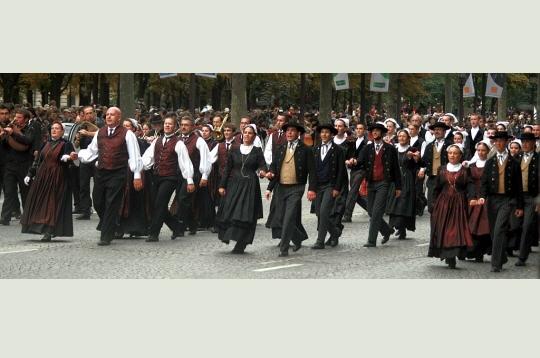Breton Dance from France
Dance Folklorique: La Gavotte
Brief history
La gavotte is believed to be one of the oldest dances in Brittany. Connected to the Trihori dance, a kind of branle, this folklorique dance is practiced all around the Cournouaille and the north ouest of Leons region. La Gavotte is the most popular folkloric dance in Brittany.
It is composed of variances of Gavotte des montagnes, of Maël Carhaix, of Quimper, of Pays Bigouden, which follows the eight beat measure of the dance.
Here is a description of the step of the dance : it has three « plays », the Simple Tone, the Bal and a double tone that begins again the simple tone but is a more sophisticated way and faster!
I used to go to few festivals (fest-noz in Brittany) during the summer holidays where La Gavotte was often danced by local dancers or sometimes professionals. I have seen it danced by large group of men and women dresses in traditional Brittany attire and it is really fun to see.
I have danced the Gavotte for fun during weddings or other large gatherings and it is a dance that always cheers the crowd.
Collectors Analysis: This dance is a prime example of traditions being passed town from generation. Though not practiced in mainstream Brittany life, Bretons are proud of their history and choose to keep traditions such as these to retain a sense of identity. Because the dance is performed, rather than written down, it allows for multiplicity and variation.


